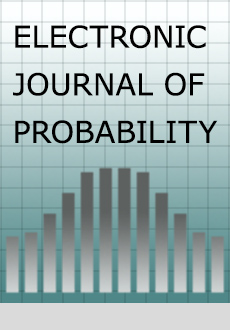Abstract
We present three different fractional versions of the Poisson process and some related results concerning the distribution of order statistics and the compound Poisson process. The main version is constructed by considering the difference-differential equation governing the distribution of the standard Poisson process, $ N(t),t>0$, and by replacing the time-derivative with the fractional Dzerbayshan-Caputo derivative of order $\nu\in(0,1]$. For this process, denoted by $\mathcal{N}_\nu(t),t>0,$ we obtain an interesting probabilistic representation in terms of a composition of the standard Poisson process with a random time, of the form $\mathcal{N}_\nu(t)= N(\mathcal{T}_{2\nu}(t)),$ $t>0$. The time argument $\mathcal{T}_{2\nu }(t),t>0$, is itself a random process whose distribution is related to the fractional diffusion equation. We also construct a planar random motion described by a particle moving at finite velocity and changing direction at times spaced by the fractional Poisson process $\mathcal{N}_\nu.$ For this model we obtain the distributions of the random vector representing the position at time $t$, under the condition of a fixed number of events and in the unconditional case. For some specific values of $\nu\in(0,1]$ we show that the random position has a Brownian behavior (for $\nu =1/2$) or a cylindrical-wave structure (for $\nu =1$).
Citation
Luisa Beghin. Enzo Orsingher. "Fractional Poisson processes and related planar random motions." Electron. J. Probab. 14 1790 - 1826, 2009. https://doi.org/10.1214/EJP.v14-675
Information





